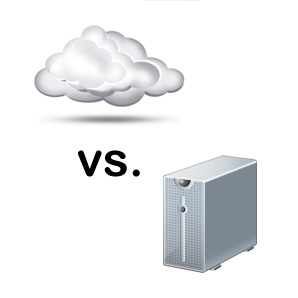Hosted vs Self-Hosted Shopping Carts
Whether you sell online via eBay and Amazon already or whether you're looking to start selling online for the first time, at some point you're going to want a website on your own domain name that sells.
There are a lot of decisions to be made about this such as whether to have a go yourself, get your IT guys to do it, find a freelancer or go with a professional web agency. Whatever option you go with, at some point a decision will need to be made about whether to go with a hosted service such as Shopify or a self-hosted, downloadable piece of software such as OpenCart.
Briefly, a hosted solution will mean paying a monthly subscription to a company who will manage the shopping cart platform for you, allowing you access to add products and categories as required but not make any fundamental changes to how the shop works. A self-hosted solution means you'll need a server i.e some web hosting space and someone to set up the platform for you.
The difference is a bit like owning a house or renting a house. If you rent you're restricted on the building work you can do and are probably limited to decorating only. If you own your house you can do almost anything you like within reason and subject to planning permission of course.
There are pros and cons to each approach:
Hosted Cloud Based Service (Shopify, BigCommerce, Ekmpowershop etc.)
Pros
- Software updates are automatically done for you
- Someone else makes sure that the platform is secure and available
Cons
- You will usually have to pay a monthly fee and sometimes also a transaction fee
- You may have very little control over the functionality of the shop beyond basic theming
- You're often locked in to the platform - often export options are intentially limited
- Someone else has full control of your web shop
Self-Hosted Platform (OpenCart, Prestashop, Magento etc.)
Pros
- You have full control over your web shop
- A skilled developer will be able to add custom functionality
- Hosting costs may be lower, depending on traffic
- You can easily export all your data and move to other platforms
Cons
- You are responsible for keeping your shop updated
- If something goes wrong it's up to you to fix it unless you have a web company on hand
- Custom development work is often expensive
We believe that a self-hosted option is probably a better option for most ecommerce websites because most of the cons can be negated by having a reliable, secure web host and a supportive and proactive web company on hand.
blog comments powered by Disqus


















